In the dance world, we often use terminology that may sound strange to outsiders (or newer dance moms). To help introduce and explain these words, phrases, and expressions to our community, I compiled this Dance Mom Dictionary for anyone to peruse and use!
Please keep in mind that some terms are very location-specific (or even school-specific). If you use a term you don’t see here on this list, I’d love it if you listed it in the comments below or email me at thedancingdancemom@gmail.com!
This post contains commissioned links. As an Amazon Influencer, I may earn a small commission if you use a link to purchase one of these products (at no cost to you).
5, 6, 7, 8 (expression) – a verbal cue to the dancers to start a piece of choreography. Dancers should listen to the tempo the instructor uses so they can match the speed of their movements to the counts.
—I knew Mr. Chris wanted to get our attention when he boomed, “5, 6, 7, 8!” so we all ran to our spots to start.
Adjudication (noun) – the “grade” a routine receives based on its score. This is highly dependent on the system each specific competition company uses (generally, “5 stars” is lower than “5 star elite,” “platinum” usually is above “diamond,” “high gold” is above “gold,” etc.). Adjudication information is usually available in the competition’s program book or on the company’s website.
—We knew we had a good shot of taking first overall because we had scored the only platinum in our category in the adjudications.
Boob Tape (noun) – an adhesive sticky “bra” or a roll of skin-friendly tape that lifts and diminishes the appearance of protrusions. Dance costumes can often be revealing, making everyday undergarments unusable because of how visible they would be. Boob tape (aka, “breast tape”) can be a viable alternative (see here).
—We can’t wear a bra with that costume, so we bought some boob tape instead.
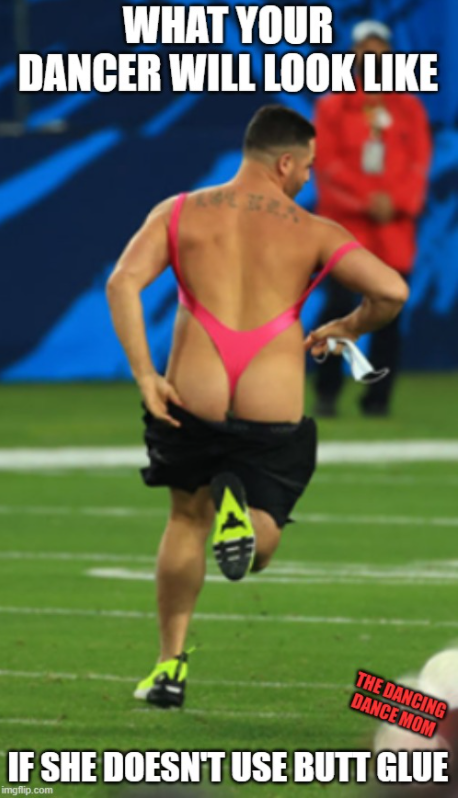
Butt Glue (noun) – body adhesive. It is often used to stop fabric from riding up (think butt cheeks) or falling off/down (think shoulder straps). Many different brands are available. Make sure to find one that is sweat-resistant (like this one).
—Her leotard was riding up her cheeks, so she used some butt glue to make it stay in place.
Call Out (noun or verb) – when a dancer is identified by a teacher/instructor for executing a piece well. Usually, that dancer will then demonstrate the combo or section for the rest of the students as an example. This may be done individually or in groups.
—Claire, the strongest tapper in our studio, was upset she didn’t get a call-out in tap class.
—At the convention, Jackie was called out in ballet for her exquisite execution of the combo.
Call Time (noun) – The time your dancer is to report to the site. Typically, company directors expect that the dancers will be completely ready to warm up or rehearse for their call times (ours always expects the hair and makeup to be 100% done, and for the dancers to be dressed in their warm-up outfit). Requirements for call times vary by studio, so check with a staff member or veteran dance mom for specifics.
—Because we had a 7 a.m. call time, we had to go to bed early the night before.
Choreo (noun or adjective) – short for “choreography,” the planned bodily movements to a piece of music.
—We have a choreo week in August; we learn most of our dances for the upcoming season in those five days.

Chuck/Chuck It (verb) – to perform a routine without rehearsing it directly beforehand.
—With block scheduling, we couldn’t rehearse our small group and had to chuck it.
Company (adjective) – used to describe anything related to the group or team of dancers that were chosen or auditioned for the group/team.
—Everyone on the team has off on Tuesday nights because there are no company classes that night.
—At the start of the season, the director has a company meeting for all the team parents.
Company (noun) – the select group/team that will be performing and/or competing as representatives of the school, or other ensemble. May or may not have “the” in front of the term.
—We had no idea how much money it would cost to join company!
—Dancers need to be invited to audition for the company.
Competition Hangover (noun) – the term for the feelings of exhaustion, moodiness, etc. that any member of a dance family or teaching staff can experience after a competition day or weekend.
—I took off from work on Monday; I couldn’t function with such a strong competition hangover.
“Competition” Tights (noun) – the tights you buy and leave in a package all season so they stay clean and new for competition day.
—Don’t wear your “competition” tights to ballet class! They’ll be ruined, and we won’t have anything for next weekend!
Donut (noun) – the thick, spongy ring that helps to shape a bun in the dancer’s hair. Also known as a “bun helper.” They come in different sizes, so be sure to choose the one that works for your dance school’s requirements (this set offers multiple sizes and tools).
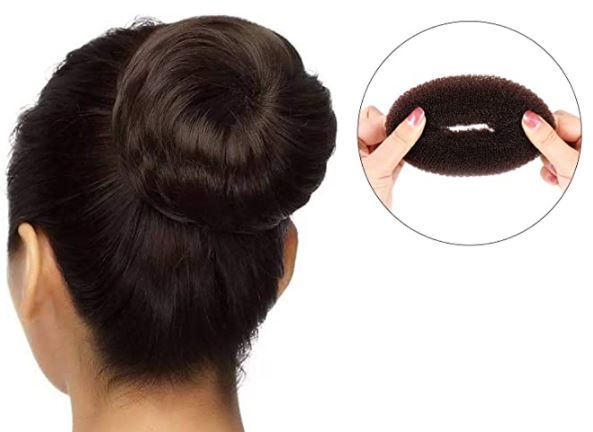
—Rather than struggle with my daughter’s fine hair, I just wrap it over a donut for a smooth, even look.
Full Out (adjective) – used often by teaching staff members during rehearsals or practices, it alerts the dancers that they are expected to perform with 100% effort as if they were competing. This includes performing all turns, tricks, leaps, jumps, and other difficult choreography. In the dance world, practicing a dance “full out” is essentially the opposite of “marking it.”
—After marking the dance twice, Miss Jessie said, “Alright guys, this time do it full out!”
Leo (noun) – short for “leotard.”
—For rehearsals, we have to wear a black outfit or leo.
Mark It (verb) – when a dancer is not expected to execute difficult elements (tricks, jumps, leaps, turns, etc.) while rehearsing or practicing a piece of choreography, they will be asked to “mark it.” Dancers might clap to mark the rotations of a turn sequence (“clap it”), or just execute the arms during a jump or leap. Staff members may allow the dancers to “mark it” when they’re learning or adjusting choreography, when the dancers are tired, or when space is limited. In the dance world, “mark it” is somewhat opposite of “full out.”
—After reblocking our production piece, we marked it twice before doing it full out.
Nationals or Natties/Nattys (noun) – an end-of-season competition that typically takes place in May, June, or July. Nationals are usually larger events than regional competitions. A competition company may only host one national competition or several, some running concurrently, usually in larger cities than the regionals were held. Many companies require that a routine compete at a regional competition before being allowed to enter at a national event. A dance studio might participate in a national competition every other year, every year, or more than one a year. A national competition can last from three days to a week and may involve increased travel.
—We’re traveling to Orlando for nationals next year, so we are fundraising aggressively to cover the costs.
“One More Time” (expression) – A phrase a teaching staff member will say while running a rehearsal. It has become something of a joke in the dance world, as teachers will usually run a number multiple times after saying “one more time.”
—We had to hold our laughter in when Miss Jackie said “one more time” for what must have been the fourth time!
Overalls (noun) – the ranked placement of the dancers, with all genres (contemporary, tap, lyrical, etc.) and sizes (small, large, lines, etc.) counted together. These are usually done within the age category.
—While his solo placed first for 9-11 contemporary, it came in third in the overalls.
Petals (noun) – circular adhesive patches or silicone discs worn on the breasts to diminish the protrusive appearance of nipples through the dance costume. May also be referred to as pasties, daisies, or nipple covers.
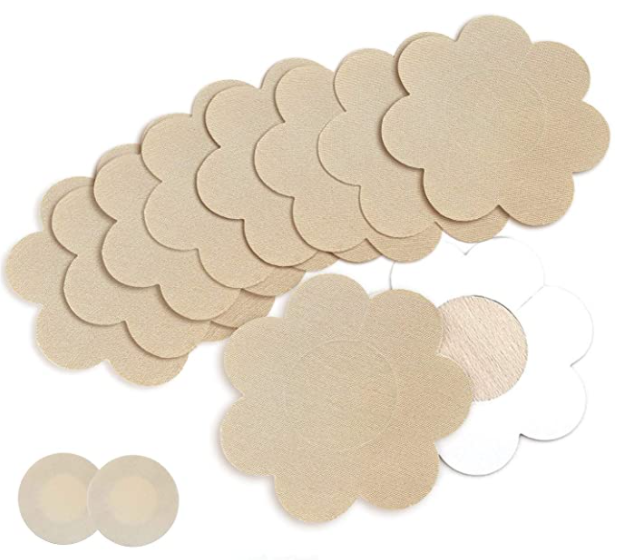
—The costume material was white and flimsy, so I had to buy some petals for my daughter.
Place/Placement (noun) – the position in which a routine is ranked. Placements are usually awarded within specific age categories and genres (8 and under jazz, teen lyrical, etc.) and in the overalls.
—We got first place in at the World Dance Championships in 2019!

Place (verb) – to achieve a ranking. Similar to its noun usage, a routine can place within specific age/genre categories and the overall rankings.
—Even though we placed fourth in petite tap, we didn’t place in the overalls.
Private (noun) – a practice session, under the guidance of a teacher, to work on technique, a specific skill, or something else the student might need assistance with. A private can be conducted one-on-one or in a very small group. Because the session should be tailored specifically to the individual student’s needs, a private can be costly.
—Suzy was having trouble with her turns, so she booked a private with Miss Christine.
Quick Change (noun) – an instance when a dancer has zero, one, or two dances in between routines in which they are performing, and need to quickly change costumes. Experienced dance moms know to prepare for quick changes in advance by having everything laid out and ready. For a more tongue-in-cheek perspective, click here!
—Because of block scheduling, nearly all of her numbers were quick changes.
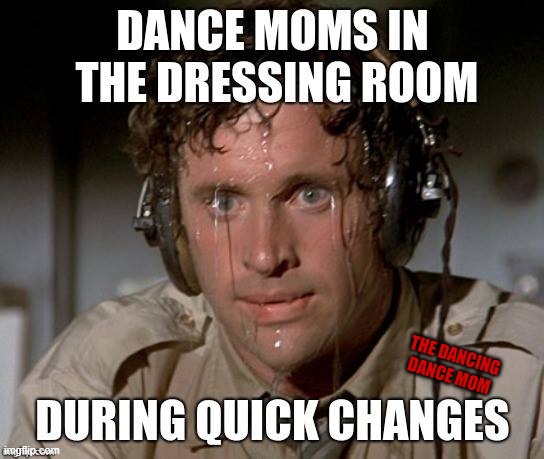
Reblock (verb) – to rearrange and adjust a dance due to fewer or more dancers. When a dancer is injured and cannot perform, the choreographer might need to move the remaining dancers’ places (or spots) to fill in a gap. Counts and choreography may need to be adjusted as well.
—Since Charlie sprained his ankle, we have to reblock the entire production routine.
Spot (noun) – a dancer’s specific place in a routine. Not to be confused with “spotting” (a technique used during turns).
—When I sprained my wrist, Miss Beth asked me to stand in my spot so she could fix the group’s spacing.
Stone (verb) – to affix rhinestones to a costume with an adhesive like E6000 or Gem-Tac. (Not what you were thinking huh? Maybe you’d like this shirt).
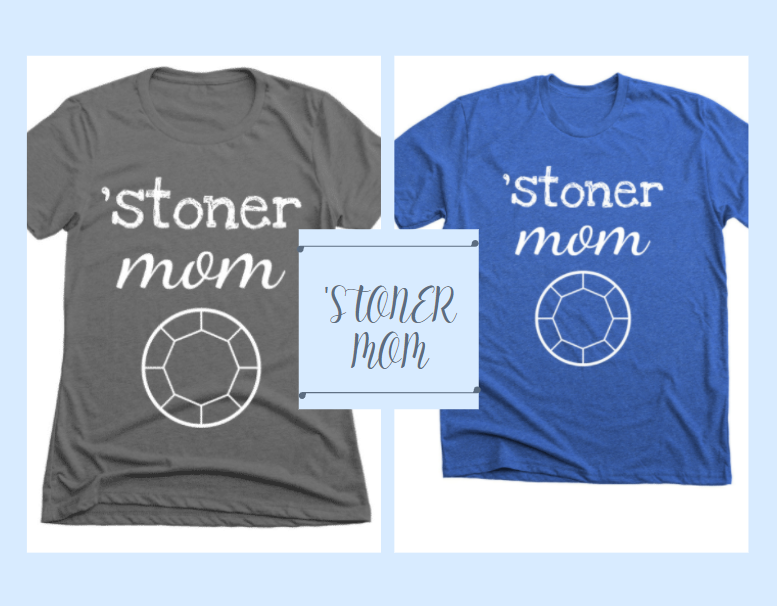
—The costumes were shipped late, so we had to rush to stone them for our first competition.
Swing (noun) – an understudy or substitute dancer.
—Stacy is a swing for that tap number.
Swing (verb) – to substitute or perform as an understudy.
—Joelle is going to swing for the teen lyrical routine.
Thongs/Foot Thongs (noun) – a dance shoe that covers the ball of the foot and wraps between the toes. Used most often in contemporary or modern dancers, they are designed to protect the ball of the foot (especially while turning). Also referred to as paws and foot undeez. Many of the well-known dancewear companies make them, including Bloch and Capezio.
—Our teacher is debating whether to make us wear thongs or go barefoot for our contemporary routine.
Title (noun) – a special adjudication for competitive soloists in which the winner is “crowned” in his/her age category. Often, this is scored differently than the adjudication for the execution of the routine. Also, dancers typically need to indicate that they want to “go for title” when they register their solo routine for the competition. Usually, this incurs an additional fee.
—She won title, and is now Miss Dance America for StarMaker’s – Chicago!
Turners (noun) – slang term for the half-shoe that dancers often use in lyrical routines (they can also be used in jazz, ballet, and contemporary as well). They are also known as pirouettes, but many dance schools have their own names for them. Sometimes, dancers only wear one (on their turning foot), which was the inspiration behind this meme.

—I have no idea why my kid has a pair of turners; she only uses one at a time!
X/The X (noun) – the exact center of the stage. This may be marked or unmarked. Typically, dance studios and competitions use two pieces of tape to mark an “x” so the dancers know exactly where “dead center” is so they can maintain their spacing and positions correctly.
—Gemma was so excited to be on the X in the group tap routine!
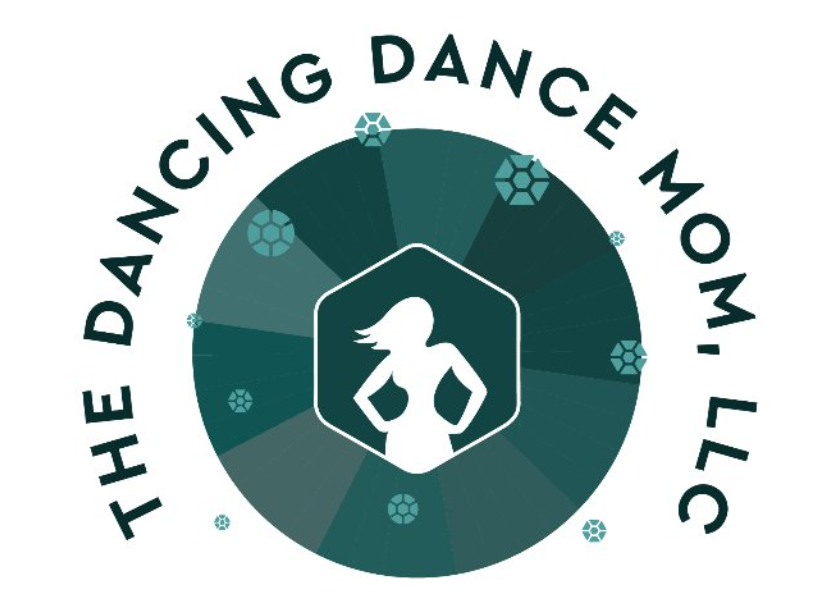

Wow, I learned a lot of new words today lol. I love that boob tape and butt glue are part of this.
Very interesting. It’s a whole different world!
I would never have guessed some of these meanings!
This was so cool. I feel like I am part of the dancing community. I now know all the lingo. Thanks for sharing. P.S. I might need some boob tape and butt glue.
I really enjoyed reading this and learning all the words related to dancers. I had no idea there was such a thing as butt glue, lol.
I am not in the dance world, so had no idea there was such a different vocabulary. Thank you for sharing. I learned a lot of new words today!
Wow this was a cool list to look through. I learned a lot about breast tape and butt glue lol!
Thank you for the list of terms. Very helpful for reading your posts.
It is really fun to learn more about this dance culture that you are so involved in! Very interesting!
I love your list! What great information!
It’s funny how much lingo you have to learn for our kid’s various activities. It’s like a new language for each sport/activity.
This is a great resource for moms of beginning dancers!
What a great list! I didn’t know most of these terms.
This was a great and informative post. I did not know most of these terms so thanks so much for sharing!